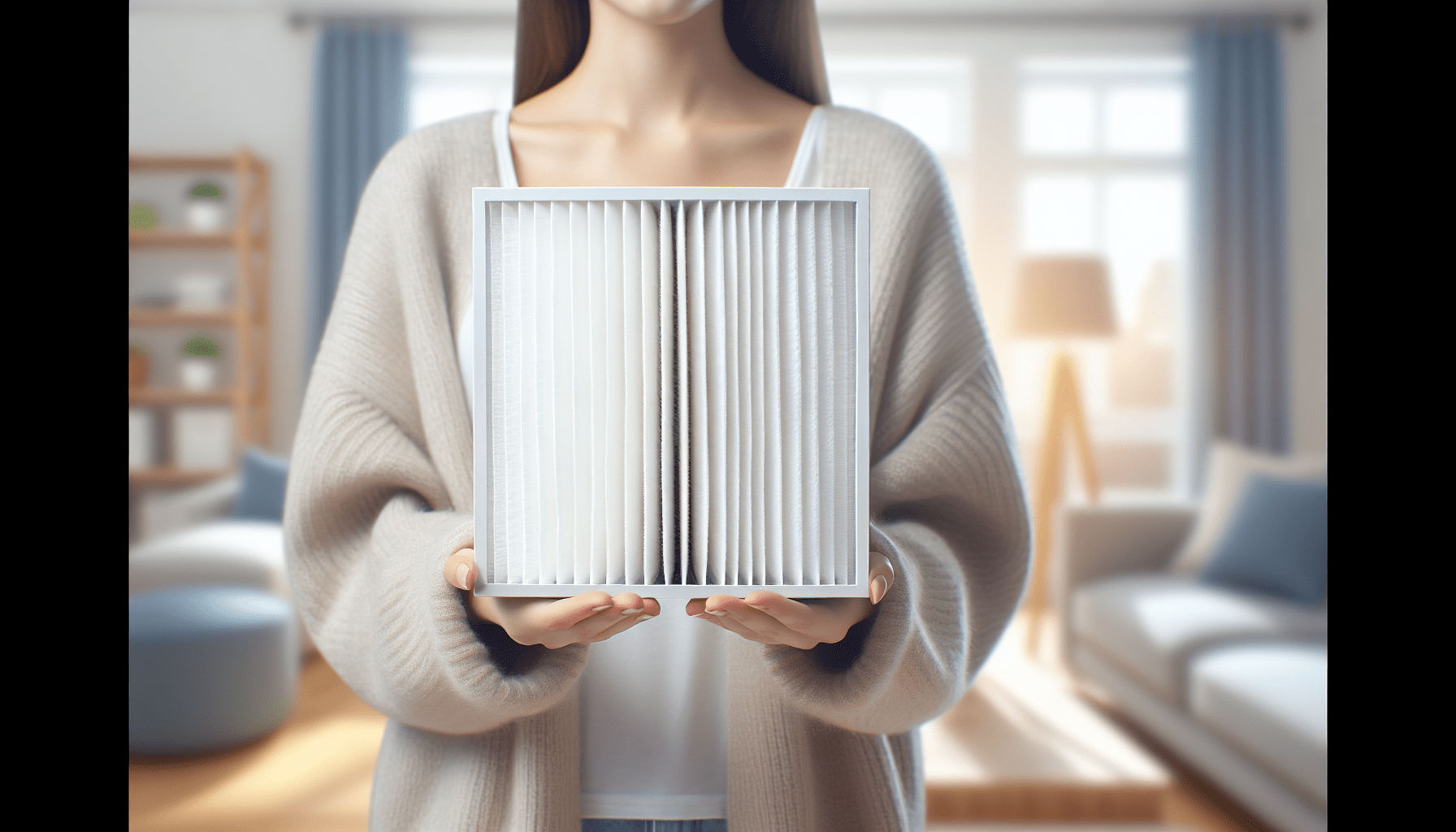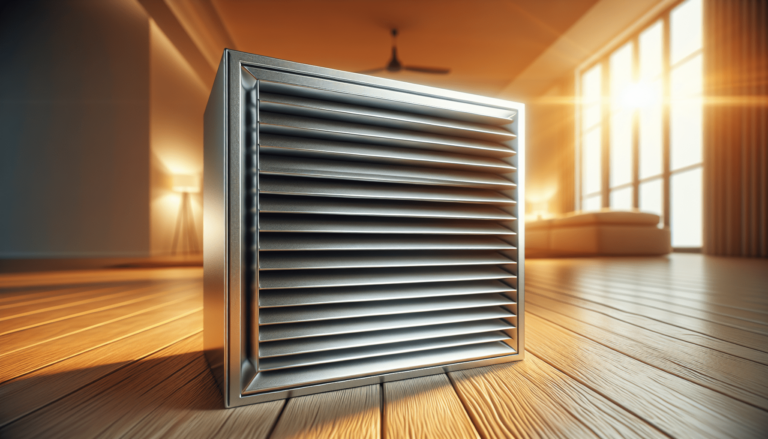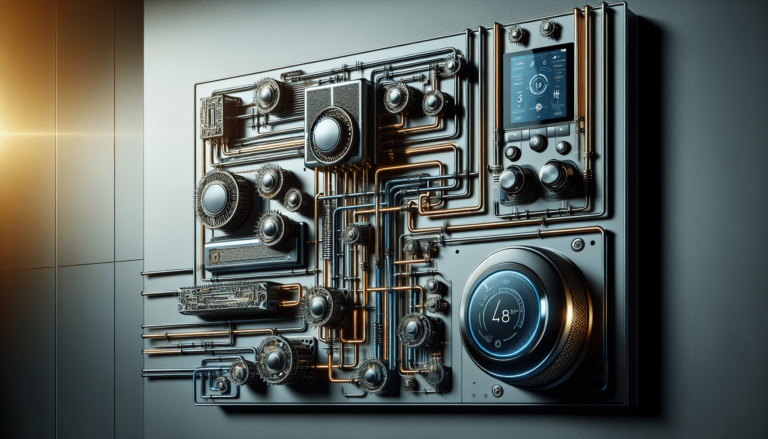

HVAC Services
Get Professional Repairs From The Area's Trusted HVAC Technicians. Ask About Our Services! We Offer Professional Heating & Cooling System Repairs And Guarantee Long-Lasting Results.
Got Question? Call us: (850) 678-2665Financing
Allergies And HVAC: Minimizing Triggers Indoors
Struggling with allergies at home? Learn how HVAC systems can either help or worsen your symptoms, plus actionable steps to keep indoor allergens at bay. Read more now!

Have you ever wondered why your allergies seem to flare up the moment you step indoors? It’s particularly frustrating when you’ve just spent a beautiful day outside, only to retreat into your home and battle itchy eyes and a stuffy nose. You’re not alone. Indoor environments can be quite the minefield for allergy sufferers, laden with a variety of triggers that can exacerbate symptoms.

Why Understanding HVAC and Allergies Matters
Your home should be your sanctuary, right? Unfortunately, for many people, it’s more like a second battleground in the war against allergies. And that’s where your heating, ventilation, and air conditioning (HVAC) system comes into play. Think of it as the gatekeeper of your indoor air quality. How well it does its job can significantly impact your comfort and health.
Common Indoor Allergens
Before diving into how an HVAC system can help or hinder your quest for allergy relief, it’s crucial to understand what kinds of allergens you’re dealing with inside your home. The usual suspects include:
Dust Mites
These microscopic critters thrive in warm, humid environments and are commonly found in bedding, upholstered furniture, and carpets.
Pet Dander
If you share your space with furry friends, you’re undoubtedly familiar with pet dander—tiny flecks of skin shed by cats, dogs, rodents, and other animals with fur or feathers.
Pollen
Yes, pollen can invade your home. These tiny grains can hitch a ride on your clothes, hair, or even your pets, entering your living space and exacerbating your misery.
Mold Spores
Mold thrives in damp, humid conditions and can spread through your home, causing severe allergic reactions and respiratory issues.
How Your HVAC System Can Be a Double-edged Sword
Your HVAC system is like a breath of fresh air—literally. However, it can also circulate allergens if not properly maintained. Let’s dig deeper.
Circulating Air
Your HVAC system circulates air throughout your home, which means it can either help to remove allergens or spread them around.
Air Filters
Standard HVAC systems come with air filters meant to capture dust, debris, and other allergens. However, not all filters are created equal.
| Filter Type | MERV Rating Range | Common Use |
|---|---|---|
| Basic Mechanical | 1-4 | Residential, minimal filtering |
| Pleated | 5-8 | Moderate allergy protection |
| HEPA | 17-20 | Hospital-grade, extremely efficient |
Humidity Levels
Humidity control is another essential function of your HVAC system. Both high and low humidity levels can foster the growth of allergens like mold and dust mites.
Steps to Minimize Indoor Allergens
Alright, now that you have a grip on the relationship between your HVAC system and allergens, let’s run through some actionable steps you can take to transform your home into the oasis you deserve.
Regular Maintenance
Scheduling regular maintenance for your HVAC system can be a game-changer. Professionals can help ensure that your system is functioning at its best, which is especially crucial for allergy control.
Change Air Filters Regularly
Let’s face it, changing air filters is as thrilling as watching paint dry. But it’s a necessary evil. Depending on the type of filter and your living conditions, you may need to replace them every 1-3 months.
Invest in a Quality Air Filter
Upgrading to a HEPA filter can make a world of difference. These high-efficiency filters capture around 99.97% of airborne particles that are 0.3 microns or larger, including most allergens.
Use a Dehumidifier
Humidity levels above 50% can turn your home into a petri dish for mold and dust mites. A dehumidifier helps maintain optimal humidity levels, typically between 30-50%.
Consider an Air Purifier
A good air purifier can complement your HVAC system by capturing even more allergens. Look for purifiers with HEPA filters for the best results.
Clean Ductwork
Duct cleaning isn’t always necessary, but if you notice significant dust buildup, pest infestations, or mold growth, it might be time to call in the experts.

The Role of Professional Services
Sometimes, it’s just better to leave things to the professionals. If you’re in the Niceville, FL area, Tempacure Heating and Air Conditioning offers a range of services tailored to help you keep those allergens at bay.
| Service | Description |
|---|---|
| Routine Maintenance | Comprehensive check-ups to ensure your HVAC system operates efficiently. |
| Air Duct Cleaning | Removes dust, mold, and other contaminants from your ducts. |
| Filter Replacement | Professional air filter replacement services to ensure optimal performance. |
Smart Home Technology and Allergy Control
The modern age brings gadgets galore, and some of these can be quite helpful for allergy sufferers. Smart thermostats, for instance, can be programmed to maintain precise humidity levels, while smart air purifiers can alert you when it’s time to change filters.
Smart Thermostats
Devices like the Nest Thermostat enable you to control your home’s temperature and humidity levels remotely. This can be particularly useful if you live in a climate with fluctuating humidity levels.
Smart Air Purifiers
Smart air purifiers like the Dyson Pure Cool link with your smartphone to provide real-time air quality data and filter replacement alerts.
Outdoor Strategies to Reduce Indoor Allergens
You might not be able to control the great outdoors, but there are steps you can take to minimize what makes its way inside.
Regular Lawn Maintenance
Keeping your lawn tidy can help reduce the amount of pollen and other outdoor allergens that enter your home.
Use of Doormats
Placing sturdy doormats at every entrance can significantly reduce the amount of dirt, pollen, and other outdoor particles that make their way inside.
Remove Shoes at the Door
Make it a habit for everyone in your household to remove their shoes upon entering. This simple act can drastically cut down on allergens.
Final Thoughts: Your Allergy Action Plan
Look, you can’t live your life in a bubble, but you can make your home a lot more bearable. Here’s a simple action plan:
- Regular HVAC Maintenance: Schedule it like you would a dentist appointment—every six months if possible.
- Upgrade Air Filters: Consider moving up to HEPA filters for maximum efficiency.
- Monitor Humidity: Aim for humidity levels between 30-50% using dehumidifiers or smart thermostats.
- Clean Regularly: Dust and vacuum with a HEPA-filter vacuum cleaner.
- Limit Pollen Entry: Utilize doormats and enforce a no-shoewear policy.
- Consult Professionals: Reach out to Tempacure Heating and Air Conditioning for expert advice and services.
So, there you have it. Take control of your indoor environment, and hopefully, your allergy symptoms will become more manageable. After all, everyone deserves a home that feels like a safe and comfortable haven.







